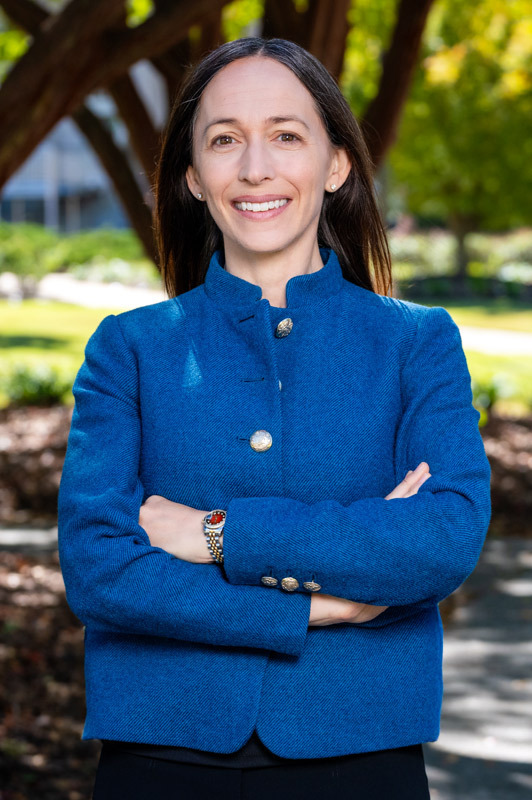Graduate student in chemical engineering wins second place at NOBCChE's annual collaborate meeting
Published: Jul 16, 2024 2:45 PM
By Joe McAdory
Kwaghtaver Samuel Desongu, a second-year graduate student in the Department of Chemical Engineering, earned second place at the National Organization for the Professional Advancement of Black Chemists and Chemical Engineers’ (NOBCChE) collaborative spring conference poster competition April 18-19 in Hampton, Virginia.
Under the mentorship of Elizabeth Lipke, the George E. & Dorothy Stafford Uthlaut Endowed Professor of Chemical Engineering, Desongu’s poster presentation, “Engineered 3D In Vitro Model of Colorectal Cancer in Insulin-Sensitive and Insulin-Resistant Microenvironments,” demonstrated the link between colorectal cancer and obesity.
“This is important because biologists have traditionally studied samples outside the body (in vitro) in 2D — that's on the bottom of a petri dish,” he said. “Since the cells in the body are in a 3D environment, then using the 3D-engineered tissue model helps to better recapitulate the tissue in the body. Previously in our lab, we developed an effective engineered tissue model that mimics the colorectal cancer tissue in the body.”
Desongu said his exploration builds upon existing interdisciplinary research between Lipke and Michael Greene, professor at Auburn University’s Department of Nutritional Sciences in the College of Human Sciences. Their collaborative project to understand why the link between colorectal cancer and obesity exists — and how to treat the dual-diagnosis — was awarded nearly $2.5 million by the National Institutes of Health in 2022.
“In this particular study, since we are interested in understanding the link between colorectal cancer and obesity, we leveraged on our already established engineered colorectal cancer tissue model to develop a new model that incorporates the obese insulin-resistant microenvironment to investigate how obesity affects the progression of colorectal cancer,” Desongu said.
Lipke said the objective of Desongu’s research is improved patient outcomes.
“Every patient wishes that there was an answer to the question, ‘What’s going to be the outcome of this treatment for me?’” she said. “Until now, most of the model systems for trying to predict outcomes haven’t taken obesity into account, even though it is directly associated with increased risk of colorectal cancer and mortality. We must incorporate this aspect of the disease into model design and characterization to move forward in making that a possibility. By using engineered tissues, we can refine the environment that the cells are experiencing in the dish, making it more like what they experienced in the human body.
“We are so proud of Kwaghtaver and the energy he provides in our laboratory. Not only does he bring curiosity to the table, but he brings that passion to find the answers that could ultimately help others.”
Desongu said winning awards such as these is meaningful and inspirational for student researchers.
“This is validation for my hard work, especially for me at an early stage as a researcher,” he said. “It serves as a motivator to continue to develop my research. I am also excited to see that I am surrounded by an Auburn Engineering family that is eager to see students succeed.”
Originally from Nigeria, Desongu has quickly developed a passion for the university he now calls home. Why? A sense of community.
“Auburn has already made a significant, positive impact on my life as a student,” said Desongu. “Coming into an environment where there are opportunities to develop as a student — as long as you are willing to put in the work – Auburn really helps you in research and sets you up for your future.
“Having a positive community that helps you grow is so important and Auburn presents an environment where you know that your work is being supported. In the chemical engineering family, you’re not just there by yourself — you have a supportive advisor and supportive lab mates. With this supportive community, it helps lead to innovation and propels us to platforms — such as this collaborative conference – that perhaps we would not have had otherwise.”
Beyond Auburn, what’s next for Desongu? Industry? Academia? Both?
“I am interested in both, but have not fully decided,” he said. “But one thing I know for sure is if even if I go to the industry, I'm going to become a mentor. Auburn has shown me that no matter how successful you are — if you have an opportunity to help other people — they can go even farther with your mentorship. It’s important to make an impact beyond your generation.”
Media Contact: , jem0040@auburn.edu, 334.844.3447
Kwaghtaver Samuel Desongu explains his presentation, "Engineered 3D In Vitro Model of Colorectal Cancer in Insulin-Sensitive and Insulin-Resistant Microenvironments."


